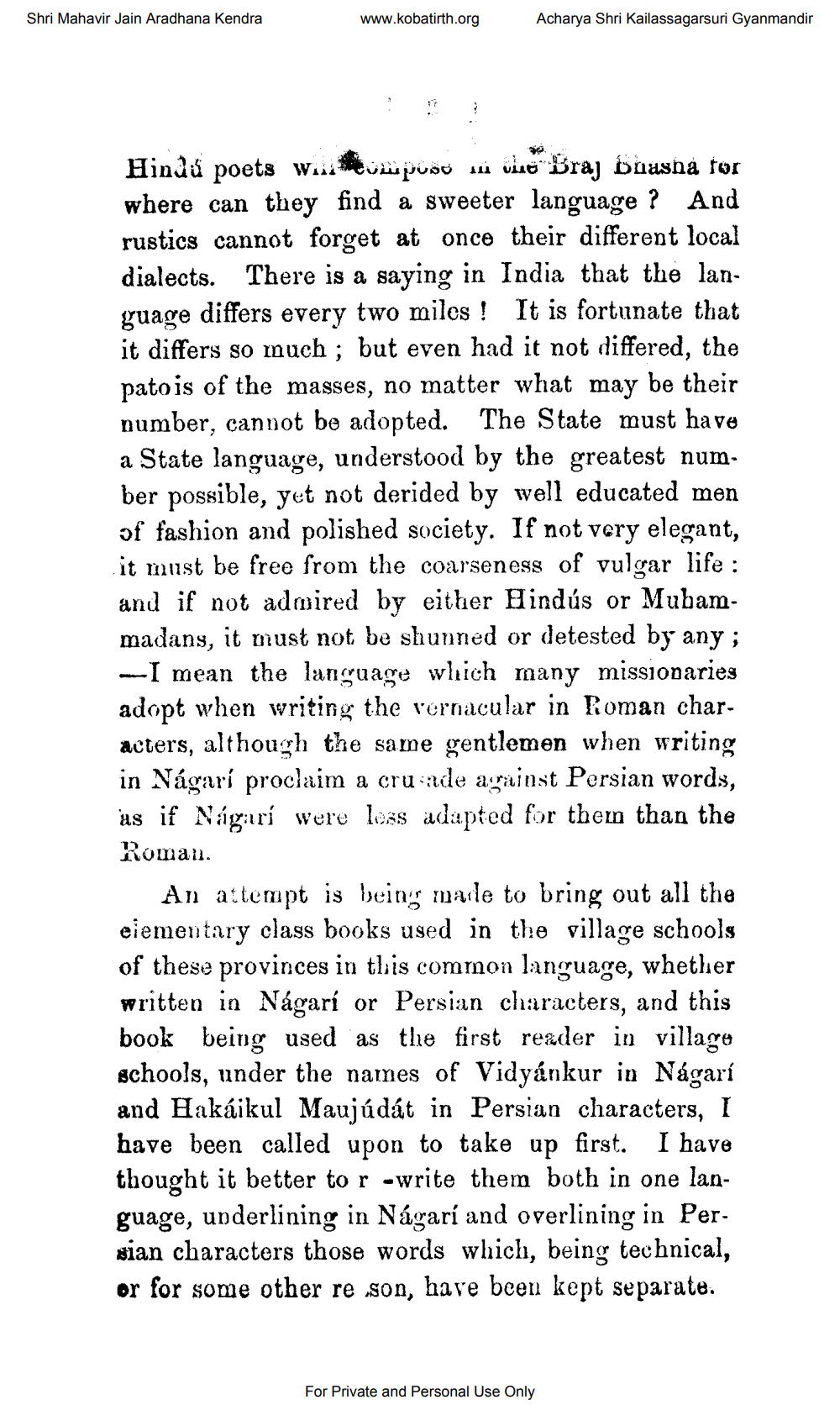________________
Shri Mahavir Jain Aradhana Kendra
www.kobatirth.org
Acharya Shri Kailassagarsuri Gyanmandir
Do
Hingú poets Witwiposo un vino Braj bnashå for where can they find a sweeter language ? And rustics cannot forget at once their different local dialects. There is a saying in India that the language differs every two miles ! It is fortunate that it differs so much ; but even had it not differed, the patois of the masses, no matter what may be their number, cannot be adopted. The State must have a State language, understood by the greatest num. ber possible, yet not derided by well educated men of fashion and polished society. If not very elegant, it must be free from the coarseness of vulgar life : and if not admired by either Hindús or Mubammadans, it must not be shunned or detested by any;
I mean the language which many missionaries adopt when writing the vernacular in Roman characters, although the same gentlemen when writing in Nágarí proclaim a crusade against Persian words, as if Nág:ıri were less adapted for them than the Romau.
An attempt is being maile to bring out all the eiementary class books used in the village schools of these provinces in this common language, whether written in Nágari or Persian characters, and this book being used as the first reader in village schools, under the names of Vidyánkur in Nágari and Hakáikul Maujúdát in Persian characters, I have been called upon to take up first. I have thought it better to r -write them both in one language, underlining in Nágari and overlining in Persian characters those words which, being technical, or for some other re son, have been kept separate.
For Private and Personal Use Only




